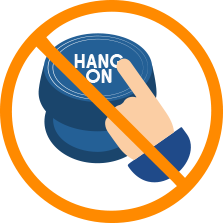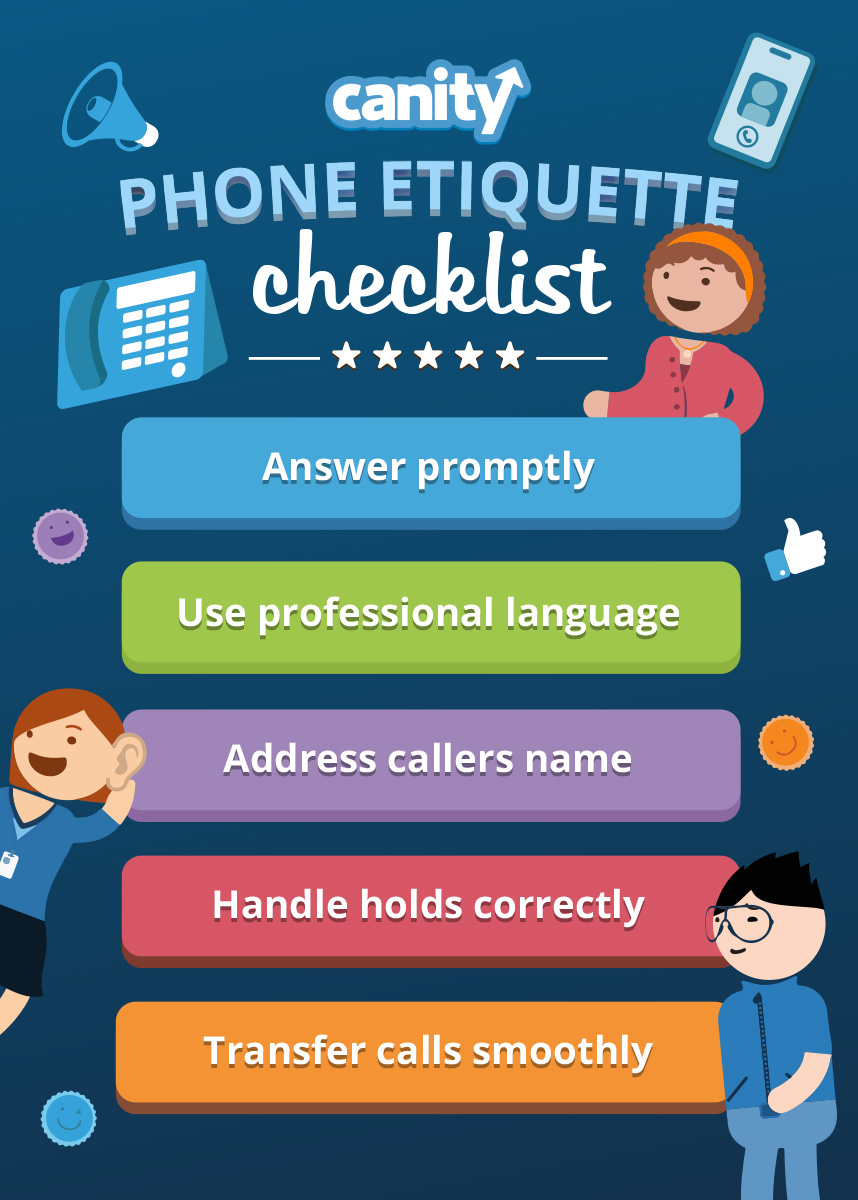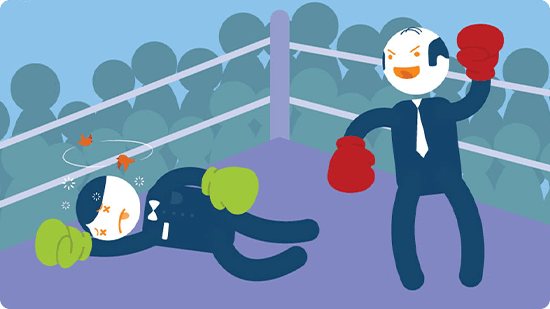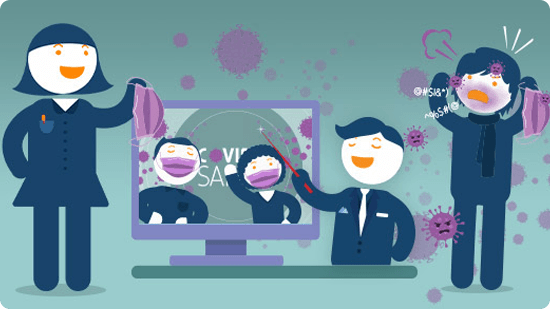

Related Articles
Related Articles
Business Phone Etiquette
Explore More
Customer Service Training
Workplace Health And Safety
Dealing With Customers Online
Time Management
Handling Customer Complaints
Learner Engagement
Prevent Customer Churn
Customer Satisfaction
Sales Training
Business Phone Etiquette: How to Improve Professional Phone Skills in Customer Service
In today's business world, first impressions matter, and many of these interactions still happen over the phone. Whether you're answering calls, transferring them, or handling customer concerns, your business phone etiquette directly impacts how customers view your company.
Strong telephone etiquette for customer service can mean the difference between a loyal customer and a frustrated one. In this guide, we'll cover everything from basic phone skills to advanced call handling techniques, giving you and your team the tools to deliver professional, polished communication every time the phone rings.
Why Business Phone Etiquette Is Important
Despite the rise of email, online chat, and social media, phone calls remain one of the most personal and direct ways customers interact with a business. According to industry studies, a caller decides within the first seven seconds whether they trust the person on the other end of the line.
Good phone etiquette in the workplace:
- Builds trust and credibility for your business.
- Reduces misunderstandings and improves efficiency.
- Helps create a professional brand image.
- Enhances customer satisfaction and loyalty.
Every call is an opportunity to show professionalism, empathy, and competence.
Common Phone Mistakes to Avoid
Before learning the right techniques, it's useful to recognise the errors that harm customer interactions:
- Using casual or dismissive phrases like "Hang on".
- Forgetting the customer's name.
- Leaving callers on hold without explanation.
- Failing to pass on important details when transferring.
- Returning to the call with "Are you there?" instead of a professional reintroduction.
Avoiding these mistakes immediately raises the standard of your customer service over the phone.
1) Use Professional Language
Always choose polite, respectful wording. Instead of "Hang on", say: "One moment please."
This simple shift conveys professionalism and keeps customers reassured while you work.

2) Personalise the Call with Names
When a customer provides their name, use it naturally in the conversation. For example: "Certainly, Ms Taylor, I'll transfer you now."
This creates rapport and shows that you value the customer as an individual.

3) Handle Holds Correctly
If you need to step away or check details, press the hold or mute button. No one wants to hear background chatter or office noise. Always thank the customer after returning from hold.

4) Provide Full Information When Transferring Calls
Instead of saying: "There's someone on line 2." Say: "Mr Johnson is on line 2, asking about his car service."
This way, your colleague can greet the customer by name and continue seamlessly.

5) Return to the Call with Confidence
Don't ask: "Are you there?" Instead, acknowledge their patience and get to the point: "Thanks for your patience, Ms Lee. I have the details you requested."

Advanced Call Handling Techniques
- Active Listening - Show that you're engaged by using short verbal cues ("I see", "Absolutely") and paraphrasing key details back to the customer.
- Controlling the Conversation - If a caller is speaking too fast or straying off topic, politely redirect: "Just to clarify, are you asking about your recent order?"
- Positive Language - Swap negative phrasing for positive alternatives. Replace "I can't do that until next week" with "I'll have that ready for you early next week."
Training Staff in Business Phone Etiquette
Strong phone skills don't happen overnight. They require training, practice, and feedback. Here's how to train your team effectively:
- Role Playing Exercises - Simulate real life calls so employees can practice tone, pacing, and responses.
- Recorded Calls - Review past calls to identify strengths and areas for improvement.
- Scripts and Guidelines - Provide a framework for greetings, transferring calls, and closing conversations while encouraging natural delivery.
- Ongoing Coaching - Regular refreshers ensure that telephone etiquette skills stay sharp.
Benefits of Professional Phone Skills for Businesses
Investing in phone skills training delivers measurable results such as:
- Higher customer satisfaction scores.
- Reduced call times thanks to efficient handling.
- Increased sales conversions from confident communication.
- Stronger team collaboration through better call transfers.
In competitive industries, these small improvements add up to a significant advantage.
Final Thoughts on Business Phone Etiquette
Mastering business phone etiquette doesn't require complicated scripts, but rather consistent professionalism and respect for the caller. From avoiding casual phrases to using the customer's name and handling transfers smoothly, these techniques elevate your customer service instantly.
Remember: every phone call is a chance to strengthen your business reputation. Train your staff, refine your professional phone skills, and make sure that when the phone rings, your company always delivers the best impression.
Explore our Customer Service Training Library to give your team the skills they need to handle any situation with confidence.

Frequently Asked Questions
What is proper phone etiquette in business?
Proper business phone etiquette means answering calls promptly, speaking clearly, using polite and professional language, and treating every caller with respect. It includes greeting callers warmly, listening actively, and ensuring smooth call transfers without making customers repeat themselves.
How do you answer a business call professionally?
- Pick up within three rings.
- Greet the caller politely with your name and company name.
- Speak clearly and with a friendly tone.
What are 3 examples of phone etiquette?
- Using the customer's name during the conversation.
- Saying "One moment please" instead of "Hang on".
- Using the hold button to avoid background noise.
Why is telephone etiquette important in customer service?
Telephone etiquette is vital because it shapes the customer's first impression of your business. A polite, professional phone manner builds trust, reduces frustration, and improves overall customer satisfaction, often leading to repeat business and positive reviews.
What is the best way to put a customer on hold?
- Ask for permission first.
- Use the hold or mute button to prevent noise.
- Thank the caller when you return and update them promptly.
How do you transfer a call without frustrating the customer?
- Explain to the caller why you're transferring them.
- Provide your colleague with the caller's name and reason for calling.
- Reassure the customer that they won't have to repeat themselves.
What is the difference between phone etiquette and phone skills?
Phone etiquette refers to the rules of polite and professional communication over the phone. Phone skills are the techniques used to manage calls such as active listening, controlling the flow of conversation, and using positive language. Together, they create excellent customer service.
If you'd like to learn more phone skills and improve your business telephone etiquette then check out our short, practical, easy to understand video training lessons at www.canity.com
Most Popular Blogs













Published by Canity